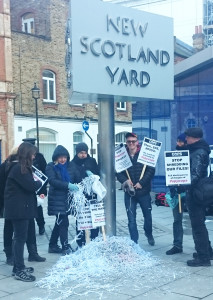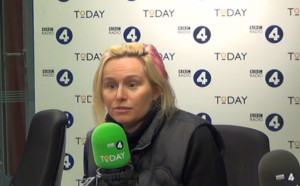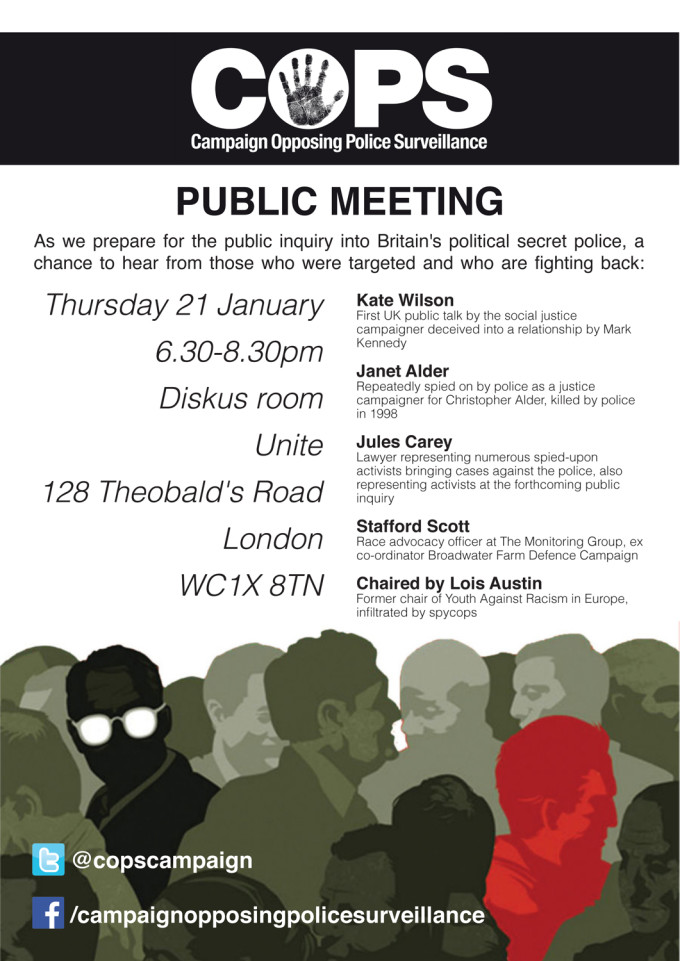Spycops Inquiry Slammed by Targeted Women
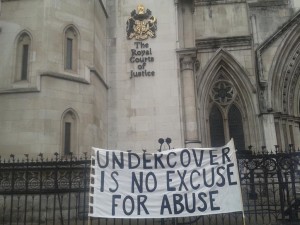 Today, thirteen women who were deceived into intimate sexual relationships with undercover policemen, over a period spanning nearly 30 years, have written to the Home Secretary to raise their concerns about the progress and recent direction of the Public Inquiry into Undercover Policing.
Today, thirteen women who were deceived into intimate sexual relationships with undercover policemen, over a period spanning nearly 30 years, have written to the Home Secretary to raise their concerns about the progress and recent direction of the Public Inquiry into Undercover Policing.
The women noted that, two years into the Inquiry, the names of the 1000+ groups spied on by political policing units have still not been made public, nor have the cover names used by officers while undercover. These two steps are critical to allow non-police witnesses to come forward and give evidence to the inquiry.
The women also raised concerns about the recent appointment of Sir John Mitting as Inquiry Chair.
Institutional Sexism
“We are very concerned that Sir John Mitting is a member of the Garrick Club which has consistently voted to exclude women from membership and to remain a men-only club. How can someone who accepts the principles of membership of such a club be suited to a role that will involve making judgements on evidence of institutional sexism within the police and wider legal system?”
“In the ‘Two Year Update’ produced by the Public Inquiry in July, the word ‘women’ does not appear at all, despite the seriousness of the abuses committed against women by undercover police officers. The timeline in that document also failed to include the public apology issued by the MPS which acknowledged that undercover police officers entering into intimate sexual relationships is a human rights abuse.”
“It is clear from these omissions that the serious abuses we suffered at the hands of the police are not taken seriously by the Inquiry.”
“In light of all these matters it is extremely difficult for us to have any confidence that the Inquiry will properly investigate the abuses we have been subjected to, or put in place measures to ensure that they never happen again to anyone else.”
Openness
The Metropolitan Police Service has been allowed to set the pace of the Inquiry with severe and ongoing delays and applications for secrecy. They also continue to hold the evidence which could demonstrate wrongdoing, and have refused to share any records with victims of abuses despite the need for victims to understand the events they were subjected to.
“We are alarmed by the imbalance in resources between victims of police spying and the fact that the Metropolitan Police Service is currently using public money to impugn those who were spied on and abused. This is a similar tactic – now thoroughly condemned – to that used by the police at Hillsborough, and it must not be allowed to continue.”
“It is critical that the cover names of the officers are released, along with the names of the groups spied upon. Without this information the public will not be able to come forward to give evidence to the Inquiry and it will be impossible to identify the scale and nature of the abuses perpetrated.”
“In order for us and the public to have confidence in the inquiry the principles of transparency and openness need to be upheld.”
The letter in full:
c/o Birnberg Pierce Solicitors
14 Inverness Street
London
NW1 7HJ
19th September 2017
Dear Amber Rudd,
Undercover Policing Public Inquiry
We are writing to request a meeting with you to discuss our serious concerns about the progress and recent direction of the Public Inquiry into Undercover Policing. We are women who were deceived into long-term intimate sexual relationships with undercover police officers over a time span of nearly thirty years. Our experiences may only be the tip of the iceberg. We are aware of other women who have been similarly deceived and believe it extremely likely that there are still more women, and possibly also children, who have yet to find out. The extent and nature of this practice amounts to institutional sexism.
As you know, the Inquiry was set up in response to revelations about the conduct of undercover police officers in political policing units such as the Special Demonstration Squad and National Public Order Intelligence Unit who had committed serious human rights abuses. These abuses were brought to light not by the police, but through the investigations of women who suffered at the hands of these officers, combined with the actions of the whistle-blower Peter Francis, and investigations by journalists.
In correspondence with the previous Home Secretary, (letter sent 11.2.15 through our solicitor, Harriet Wistrich), we stressed the importance of transparency in the Public Inquiry. This is essential in order for the truth to be known, the victims of undercover police abuses to understand and come to terms with what happened, and for the public to have any confidence in the Public Inquiry. We are alarmed, therefore, that two years into the Inquiry, the public has learned nothing new about the extent of these abuses or how they were allowed to happen. Even the names of the 1000+ groups spied on have still not been released.
In addition we are alarmed by the appointment of Sir John Mitting as Inquiry Chair, and by the fact that this was announced on August 2nd when many lawyers and/or their clients were on holiday making it difficult to raise any objections. We feel that this demonstrates again a lack of respect for those abused by the police. Since Sir John Mitting became Inquiry Chair it appears that there has been a significant shift towards greater secrecy. We believe that his background as Vice President of the Investigatory Powers Tribunal since 2015 is likely to have influenced this shift and we are concerned that steps need to be taken immediately to rectify this and increase transparency.
Institutional Sexism
We also understand that Sir John Mitting is a member of the Garrick Club which has consistently voted to exclude women from membership and to remain a men-only club. We question how someone who accepts the principles of membership of such a club can be suited to a role that will involve investigating sexist practices and making judgements on what we consider to be clear evidence of institutional sexism within the police and wider legal system.
It is noteworthy that in the ‘Two Year Update’ produced by the Public Inquiry in July, the word ‘women’ does not appear at all, despite the seriousness of the abuses committed against us and other women by undercover police officers. While there are references to the sensitive issue of dead children’s identities being used for cover purposes, there are no such references to the long-term abuse of women. We also note that the recently published timeline in that document failed to include the public apology issued to us by the Metropolitan Police Service (MPS) which acknowledged that we were subject to human rights abuses by undercover police officers. We attach a copy of this apology in case you are not familiar with it. It is clear from these omissions that the Inquiry is failing to take seriously the grave abuses we and other women suffered at the hands of the police.
In light of all these matters it is extremely difficult for us to have any confidence that the Inquiry will properly investigate the abuses we have been subjected to, or put in place measures to ensure that they never happen again to anyone else.
We seek a meeting to resolve the following concerns:
1. What steps will be taken to ensure that the Inquiry has sufficient knowledge and understanding of sexism and its effects to be able to identify and address the clear institutional sexism which has been revealed by the repeated use and abuse of women (over the course of several decades) who were deceived into intimate sexual relationships by undercover police officers.
2. What steps will be taken to ensure that the Inquiry is open and transparent, so that the public can have confidence in its findings? In the recent indicative and final rulings by Sir John Mitting on restriction order applications by the MPS, he has repeatedly come down in favour of secrecy for the police at the expense of truth for the victims and public; the secrecy approach taken by the Investigatory Powers Tribunal of which he is Vice President is definitely not an appropriate approach to bring to a public inquiry.
3. Cover names must be released, otherwise it will not be possible to identify the true scale nature of the abuses perpetrated. Women and children may be left unable to make sense of events in their lives, and witnesses will not be able to come forward to give evidence to the inquiry.
4. The MPS has been allowed to set the pace of the Inquiry with severe and ongoing delays and applications for secrecy, and despite a huge budget have been allowed every latitude to delay still further. What steps will be taken to ensure that cover names are released as soon as possible?
5. The Inquiry is an investigation into serious wrongdoing by the MPS yet this same body maintains control of much of the evidence, including that which could demonstrate the guilt of officers and their managers, how can this be appropriate?
6. Evidence controlled by the MPS is not being disclosed to those spied upon. This both impacts on our ability to process what happened and hampers the Inquiry’s progress and likely success: since our investigations were instrumental in bringing human rights abuses to light, clearly if we had access to these documents we could assist with identifying areas for investigation and with correcting inaccuracies. What steps will be taken to speed up the release of material, especially of material over twenty years old, in line with the government’s twenty-year rule?
7. It is wrong that the MPS has unlimited resources to impugn those who were spied on and abused. This is a similar tactic – now thoroughly condemned – to that used by the police at Hillsborough, and it must not be allowed to continue. We are concerned in any event at the significant financial and power imbalance between the MPS resources and those of the victims of police spying. As a result of this imbalance, the non-state core participants (NSCPs) are, in practice, prevented from making submissions on issues of concern to them, whereas the MPS is able to make multiple applications of its choosing.
8. MPS documents served recently, including the Risk Assessment and Mosaic Report, contain multiple inaccuracies and offensive material. They suggest that our motives for searching for our disappeared partners were sinister and malign, rather than acknowledging that the police abuses would not have come to light without our research and that of the Undercover Research Group.
9. MPS reports repeatedly attempt to downplay the abuses committed against us and other women, or even suggest they did not happen, for example Mosaic Effect Report [4.4] uses the word allegedly regarding a woman being deceived into a sexual relationship with Bob Lambert, despite the fact that after women he deceived bravely came forward to report this abuse, even Lambert himself admitted to having four sexual relationships while undercover.
10. Public protests seeking accountability for the actions of police who have committed abuses have offensively been labelled harassment [e.g. Risk Assessment Briefing Note 10.12] despite the fact that protest is a protected right. Furthermore, as none of the officers have been prosecuted or disciplined for the human rights abuses they have committed, the public clearly cannot rely on the state for accountability. What steps will be taken to ensure that this abuse of victims and public resources does not continue?
11. It is insulting that we were required to provide intrusive psychological reports to the MPS which was responsible for the abuse and invasion of privacy we were subjected to, yet neither we nor our lawyers are allowed to see or challenge police psychological reports being used by the MPS to argue for secrecy at the Inquiry.
12. The fact that the Chair is minded to accept secrecy in the Inquiry around the identities and actions of officers and units who committed serious abuses, for fear that openness would cause too much stress or potentially harm those officers, is of grave concern. This is not a privilege generally extended to anyone else accused or under investigation, and looks alarmingly like an attempt to protect the reputation of the police.
13. The disparity between the cavalier approach to the privacy of victims of undercover policing compared to the cautiousness towards the MPS, evidenced by data breaches relating to NSCPs, including the recent publication by the Inquiry of the real name of one of us despite a court order with penal notice prohibiting this.
We request a meeting with you at your earliest convenience to discuss our concerns.
Yours sincerely*,
“Alison”
“Andrea”
Belinda Harvey
Helen Steel
“Jane”
“Jessica”
Kate Wilson
“Lisa”
“Lizzie”
“Monica”
“Naomi”
“Rosa”
“Ruth”
* Names in inverted commas are the pseudonyms by which we are known to the Public Inquiry

 People spied upon by Britiain’s political secret police in Scotland are boycotting the forthcoming Scottish review of the issue, saying ‘it cannot be trusted’ and branding it ‘pointless’.
People spied upon by Britiain’s political secret police in Scotland are boycotting the forthcoming Scottish review of the issue, saying ‘it cannot be trusted’ and branding it ‘pointless’. There has been
There has been 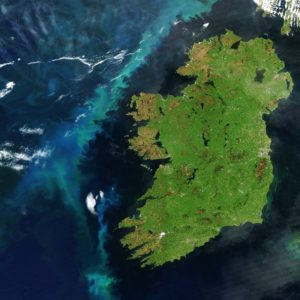 Of the thousands of people targeted by Britain’s political secret police, around 180 were known to be so significantly impacted that they have been granted ‘core participant’ status at the forthcoming
Of the thousands of people targeted by Britain’s political secret police, around 180 were known to be so significantly impacted that they have been granted ‘core participant’ status at the forthcoming 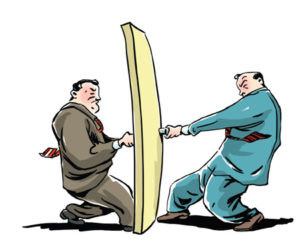 In the wake of the Home Office decision not to extend the Pitchford inquiry to Scotland, a group of
In the wake of the Home Office decision not to extend the Pitchford inquiry to Scotland, a group of 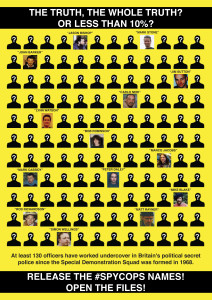 As the
As the 